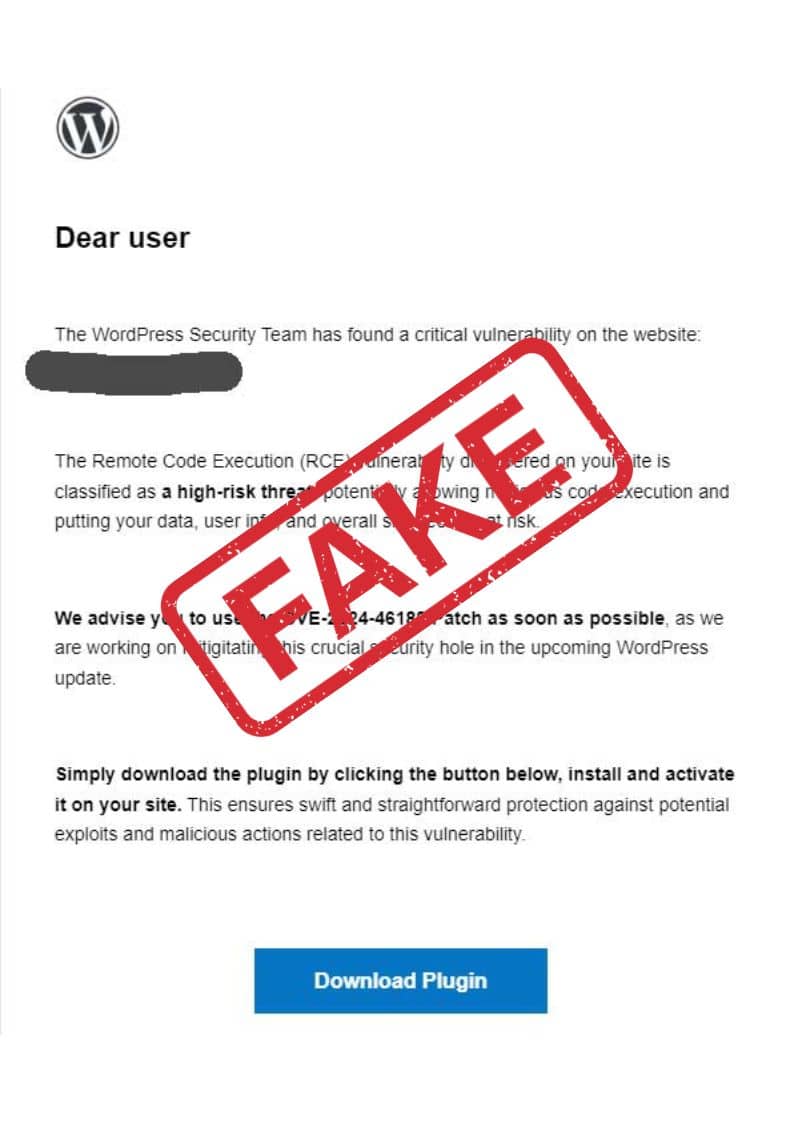Small business scams are on the rise, with an alarming increase in reported cases annually. This trend is not just a statistic—it presents a real threat to the survival and success of small businesses. Therefore, it's crucial for you to remain vigilant and informed, to protect your business diligently from these potentially harmful scams.
The Google Business Listing Scam
 This scam usually begins with a robocall or an email that appears to be from Google. The sender or caller warns you that your Google Business listing is about to expire or has incorrect information. They may even threaten that failing to correct the alleged issue will result in your business no longer appearing in Google search results. In the scenario where a small business owner, such as a café proprietor, receives a call alleging that their Google listing will be removed unless immediate verification of certain information is performed, it's crucial to tread cautiously. Complying with these demands can lead to a slew of unauthorized charges and even loss of control over your business profile. It is essential to understand that Google does not typically solicit such information via calls or emails, and any such communications are likely fraudulent.
This scam usually begins with a robocall or an email that appears to be from Google. The sender or caller warns you that your Google Business listing is about to expire or has incorrect information. They may even threaten that failing to correct the alleged issue will result in your business no longer appearing in Google search results. In the scenario where a small business owner, such as a café proprietor, receives a call alleging that their Google listing will be removed unless immediate verification of certain information is performed, it's crucial to tread cautiously. Complying with these demands can lead to a slew of unauthorized charges and even loss of control over your business profile. It is essential to understand that Google does not typically solicit such information via calls or emails, and any such communications are likely fraudulent.
The Domain Name Renewal Scam
There are several types of domain name related scams circulating. You might receive a letter in the mail that looks legit and contains all of your information. The sender will urge you to renew the registration by paying an exorbitant fee. These scams attempt to take over your domain and charge you a fee that is far beyond what a normal domain name renewal would cost. Read this article with examples of domain name renewal scam letters.
There are also email versions of domain name scams. Scammers for this scheme send out official-looking letters by mail or emails claiming that your domain name is about to expire. The emails often appear to come from your actual domain registrar, complete with logos and other branding, and may even include a link to a website that looks just like your registrar's. Going through the process they request can result in your domain name registration being moved to a different registrar and you can even lose control of your domain where they will work to get you to have to pay large fees to get your domain name back in your control.
The Website Hosting Renewal Scam
In this scam, fraudsters send urgent emails warning that your website hosting is about to expire. These messages often mimic the look and feel of correspondence from your actual hosting provider. For instance, consider a local bakery shop that operates a lively online sales platform. They receive an email, professionally designed to resemble correspondence from their actual hosting provider, urgently warning about an impending hosting expiration. The email prompts immediate action, requesting a significantly higher fee for renewal to prevent service disruption. The bakery, prioritizing the continuity of their online business and fearing potential loss in sales, hastily pays the fee. Later, they discover the email was fraudulent — not only were they not due for renewal, but they had also paid an inflated fee to a scammer and have potentially lost possession of their website and hosting.
WordPress Security and Plugin Notice Scams
Specifically targeting WordPress users, these scams exploit vulnerabilities in the platform and its plugins. Scammers often send emails alerting you to urgent security updates, vulnerabilities, or plugin upgrades that require payment. In one example provided by security services, a small business owner received an email warning of a security breach in their WordPress site, asking for a payment to fix the issue. Unfortunately, he paid the fee, not realizing that it was a scam until it was too late.
WordPress User Phishing Scams
Other WordPress security-related scams come through as emails that alert you to vulnerabilities in your website with a link for you to log in and "fix" the issue or a link to download and install a plugin as a "patch". These phishing scams are rampant in the digital world, and small businesses are not immune. With login credential phishing scams, scammers create fake websites that look like legitimate ones to trick users into entering their login information.
They can then access your sensitive data or take over your website entirely. Once you click on the link and use your administrative username and password to try and login, the scammers can now log into your website and do damage in other ways including taking over your website and stealing data. It's so important to not use your login credentials from an email if you are not certain it is legit.
To avoid this type of scam, always double-check the URL before entering any login information and never click on suspicious links or attachments.
Web Form Submission Scams
With the rise of web forms, scammers have found a new way to exploit businesses. They send unsolicited messages through website forms, pretending to be potential customers or business inquiries. Once you respond, they may launch into their scam, demanding payments, find ways to get your login details or sensitive information.
 Facebook and Social Media Business Page Scams
Facebook and Social Media Business Page Scams
Scammers also target businesses through social media platforms. They may send fake messages, pretending to represent Facebook, and claiming that your business page is about to be closed down for violating terms. Other messages claim to need to validate or verify page ownership. Other scams through social media business pages involve fake customer inquiries, where scammers pose as potential clients or customers and request sensitive information or make fraudulent payments.
We have seen replica Facebook business pages created that look just like your actual page. The scammers then start commenting on your business page and interacting with visitors. Some scammers like to create replica websites as well, and try and take over contests, where they try to get your contest participants to go and confirm their "entry" on the fake website or ask them for personal information and even credit card signups.
To protect yourself from these scams, always be cautious when responding to messages or requests through social media platforms
Tips to Identify and Avoid Small Business Scams
Recognizing these scams requires vigilance. Detecting these deceptions calls for a keen eye. Look out for warning signals in all correspondence you receive. Be cautious of uninvited communication, particularly if it triggers a sense of urgency or originates from an unfamiliar source. Always take time to meticulously proofread emails for errors or inadequate grammar, an email address that is not legit, and stay alert to generic salutations. Ultimately, safeguard your personal and business details and refrain from making any payments before conducting comprehensive research.
4 Tips for Identifying Online Scams
Incorporate these practical steps to stay safe:
- Check for red flags in any communication you receive.
- Beware of unsolicited contact, especially if it creates a sense of urgency or comes from an unknown source.
- Always proofread emails for typos or poor grammar, and be suspicious of generic greetings.
- Never give out personal information including account numbers or email addresses used in your accounts, or make a payment without conducting thorough research first.
What to Do If You Fall Victim to a Small Business Scam
Discovering that you have been scammed can be a stressful experience. However, swift and decisive action can help mitigate the damage. First and foremost, register a complaint with your nearest police station if money is involved. You should also promptly inform your financial institution and any impacted service providers, such as your web developer, hosting company, or domain registrar, about the incident. Start an inventory of all of the services your business has online and the contact information or vendor for each one. This list will come in handy when you need to contact service providers quickly.
Here's your action plan if scammed:
- Report the scam to the nearest police station.
- Alert your financial institution and any service providers influenced by the scam (this could be your web developer, web host, or domain registrar).
- Have a list of your services and providers available for communications or to check against future scams and requests.
Steps to Protect Your Business from Scams
Educate your employees about the different types of scams and how to identify them. Encourage them to report suspicious activities and always verify the authenticity of unsolicited messages. Utilize reliable and verified platforms for your online business needs. Spam protection for your email is a good idea as well. Your IT team may be able to help protect malicious emails from making it through to your inbox. The more informed your team is, the less likely they are to fall victim to a scam.
Adopt a proactive stance in protecting your business from these threats.
Here are some ways to do this:
- Educate your employees about the different types of scams and how to identify them.
- Encourage them to report suspicious activities and always verify the authenticity of unsolicited messages.
- Utilize reliable and verified platforms for your online business needs.
Steps to Safeguard Your Business from Fraudulent Activities
To arm your business against fraudulent activities, it is vital to take some proactive steps.
- Employee Awareness: Create a comprehensive learning program to acquaint your employees with various scams and their identifiers.
- Promote Transparency: Foster an environment of openness where employees feel comfortable reporting suspicious happenings.
- Message Verification: Incentivize the practice of validating unsolicited messages before any action is taken.
- Reliable Platforms: For your digital business requirements, always opt for platforms that have been thoroughly vetted and have a proven track record of reliability.
- IT Security: Invest in IT security measures such as spam filters and firewalls to protect your business from malicious online activities.
- Understanding of all Services your Business uses: Keep a record of all services and providers utilized by your business to ensure prompt verification and reporting.
You Can Avoid Getting Scammed
In the digital age, scams targeting small businesses have become increasingly common. It's important to stay informed and proactive in protecting your business. Remember, the safety of your business is paramount, and knowledge is your best defense.
As always, we are here to help! Have questions or need help determining if you have encountered a scam? Contact Us today!

Let's connect on a call!
Let's talk about how Redwood Valley Technical Solutions can help you accelerate your business online.
-
Schedule a 15 minute call
-
Discuss how we can help solve your current website and digital marketing problems
-
Take a look at our system and processes to launch your brand online
-
Talk about pricing and the budget — as well as ROI
-
Review the timelines and commitments needed to succeed




